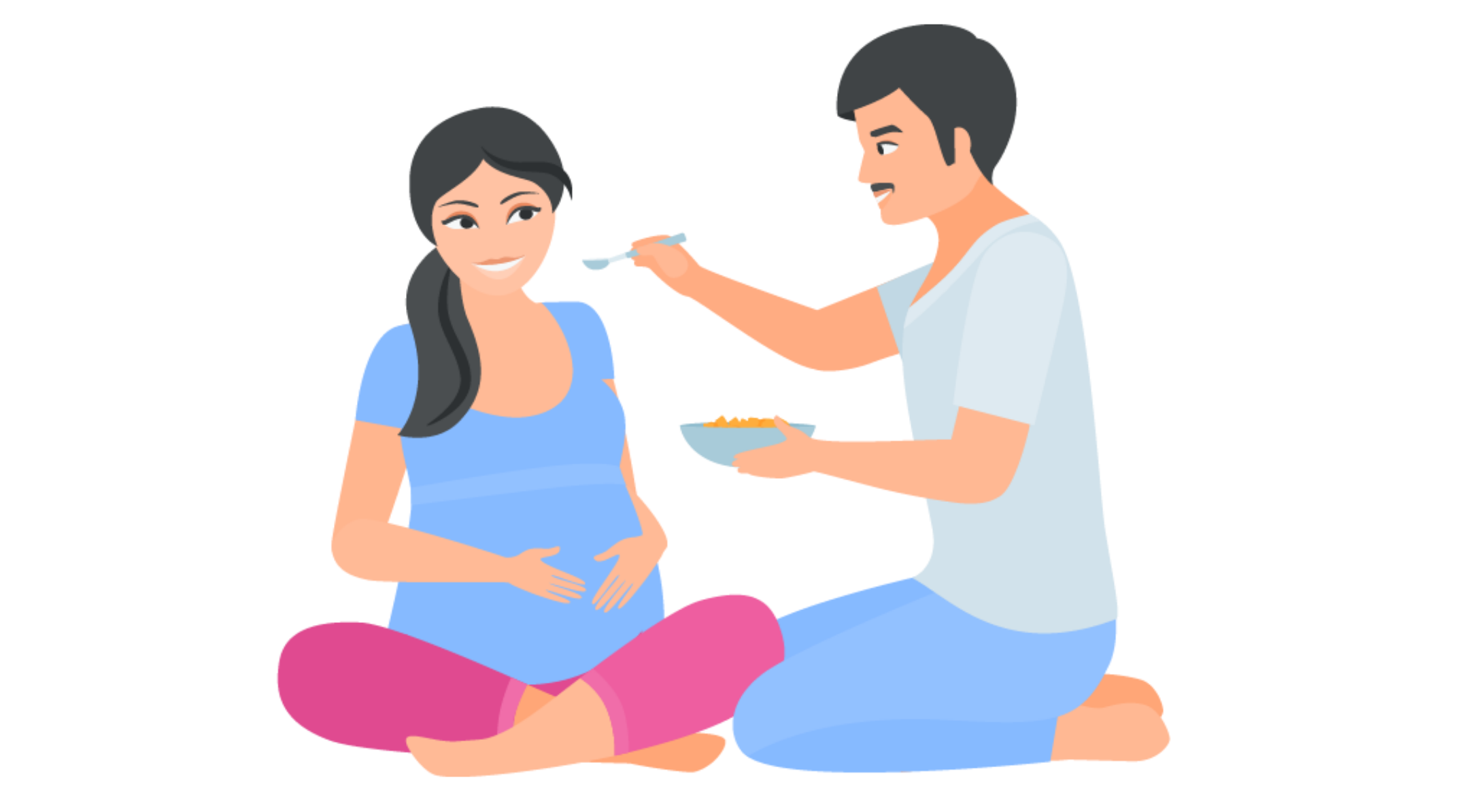This is the last month of the second trimester and by the end of this month, you should be able to feel the baby movements. This is also the month during which you will observe an increase in your appetite due to increasing demands from the growing fetus.
It is very important to satisfy this hunger with a healthy diet to prevent unnecessary weight gain and to meet the fetal demands. Here are healthier food choices that you make during the sixth month to stay healthy and for appropriate weight gain.
Essential Nutrients
The demand for nutrients increases as the pregnancy progresses. It is vital for pregnant women to have a nutritious diet so as to provide the right amount of required nutrients to the fetus. Nutrients required during the sixth month of pregnancy are as listed below:
Protein
The newly formed bones, muscles and other vital organs of the fetus develop further in the sixth month. For the perfect formation of bones and muscles, it is essential to provide good amounts of protein to the fetus. In an attempt to obtain high amounts of protein, pregnant women should not consume red meat as it is hard to digest.
It is recommended to eat lean meat, eggs, tofu, white fish and legumes that are rich sources of protein.

Calcium
Calcium is required to strengthen the bones of the fetus as well as to prepare the mother for breastfeeding after pregnancy. Dairy products such as milk and yogurt are rich sources of calcium.

To prevent unwanted weight gain due to increased intake of dairy products it is recommended to take low fat or skimmed milk.
Iron
Iron is required to prevent anemia, fatigue, and weakness during pregnancy. Taking recommended amounts of iron every day ensures sufficient blood supply to the fetus and thus, nourishment of the baby.
Foods to have more
- Unsalted nuts to obtain sufficient amounts of protein and essential fatty acids.
- Skimmed milk to meet calcium demands.
- Fruits and vegetables to obtain the vitamins and minerals.
- Fluids such as fruits juices and water to stay hydrated and prevent constipation.
- Green tea during snack time as it helps to soothe the body and assists in the detoxification process.

Foods to be avoided
- Avoid foods such as sweets and chocolates that are rich in simple sugars to prevent the risk of gestational diabetes.
- Alcohol and tobacco are harmful to the fetus. They cause irreversible damage to the baby and in certain conditions may even lead to death.
- Caffeine-containing beverages such as coffee especially before bedtime as they may cause difficulty sleeping.
- Raw seafood such as fish that contain high amounts of methylmercury is the potential cause of foodborne diseases that are harmful to the baby.
- Poorly cooked meat and eggs as they are contaminated with bacteria and are also not easily digestible.
- Spicy foods as they cause acidity and stomach burn that are good for the baby.

Have three meals and three snacks a day
Every meal, breakfast, lunch, and dinner are very important. Skipping meals can result in acidity and heartburn. It would also make you feel tired and weak. Breakfast, the first meal of the day is very important during pregnancy as diet taken on an empty stomach gets assimilated into the body very well.
Include nutritious foods such as fortified cereals, whole-grain foods, and fruit juices as a part of breakfast. However, ensure that the foods you take are not only easy to digest but are also very appetizing especially if morning sickness is still troubling you.
Lunch, the second meal of the day should be well balanced with different food varieties such as grains, legumes, vegetables, and dairy products. Have a cup of brown rice or chapati along with well-cooked vegetables and dhal. Consider having a small pot of yogurt helps you obtain calcium and protein. Having plenty of yogurts is also believed to reduce the risk of vaginal infections.

In between the two meals include a snack. Fruits, fruit juices, dry fruits, bread and other foods that are rich in vitamins, minerals, and protein are recommended as snacks.
Dinner, the last meal of the day should be very light and easy to digest. To prevent heartburn and heaviness of the stomach it is recommended to have your dinner early at least two hours before bedtime. Have a glass of lukewarm milk before going to bed for a nice sleep.
In the evening consider having green tea, granola bars, a glass of milk, fruit juices and other nutritional snacks to stay energized.
Food choices to make during the Sixth month of pregnancy
Make healthy food choices to satisfy your increased appetite. Include foods from all food groups such as grains, legumes, fruits, vegetables, dairy products, and meat. It is also important to include fat-rich foods especially those with essential fatty acids.

- Whole-grain foods such as brown bread, oats, brown rice, and brown pasta as they are not only rich in vitamins and minerals but are also rich in fiber that prevents constipation that is noticed during this period of pregnancy.
- Vegetable soup made with sweet corn or tomatoes before lunch to prevent constipation and heartburn.
- Pasta provides the needed calories.
- Oats to obtain fiber and magnesium.
- Fruits like grapes, oranges, banana, apples, pears, cantaloupe and mangoes as they are the rich source of vitamins and minerals.

Remember to take the required medications as suggested by the obstetrician. Never take over the counter medications without the guidance of the physician as some of the medications pass through the placenta and are proven to be harmful to the baby.
It is very important to visit the obstetrician immediately without any delay if any abnormality such as bleeding, lack of baby movements or pain in the abdomen is noticed.
Stay healthy and give birth to a healthy baby. Staying healthy and taking a nutritious diet keeps fit and healthy even during breastfeeding after pregnancy.

